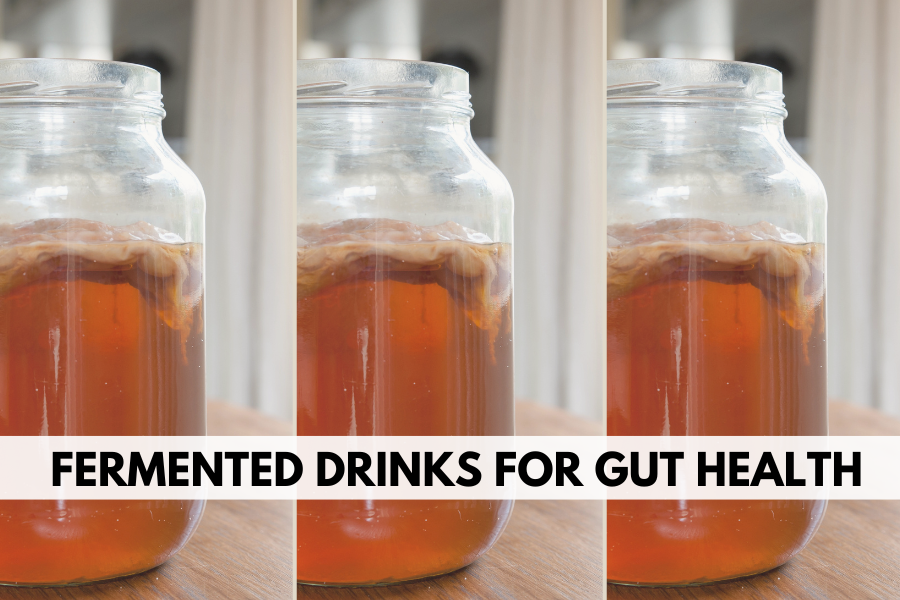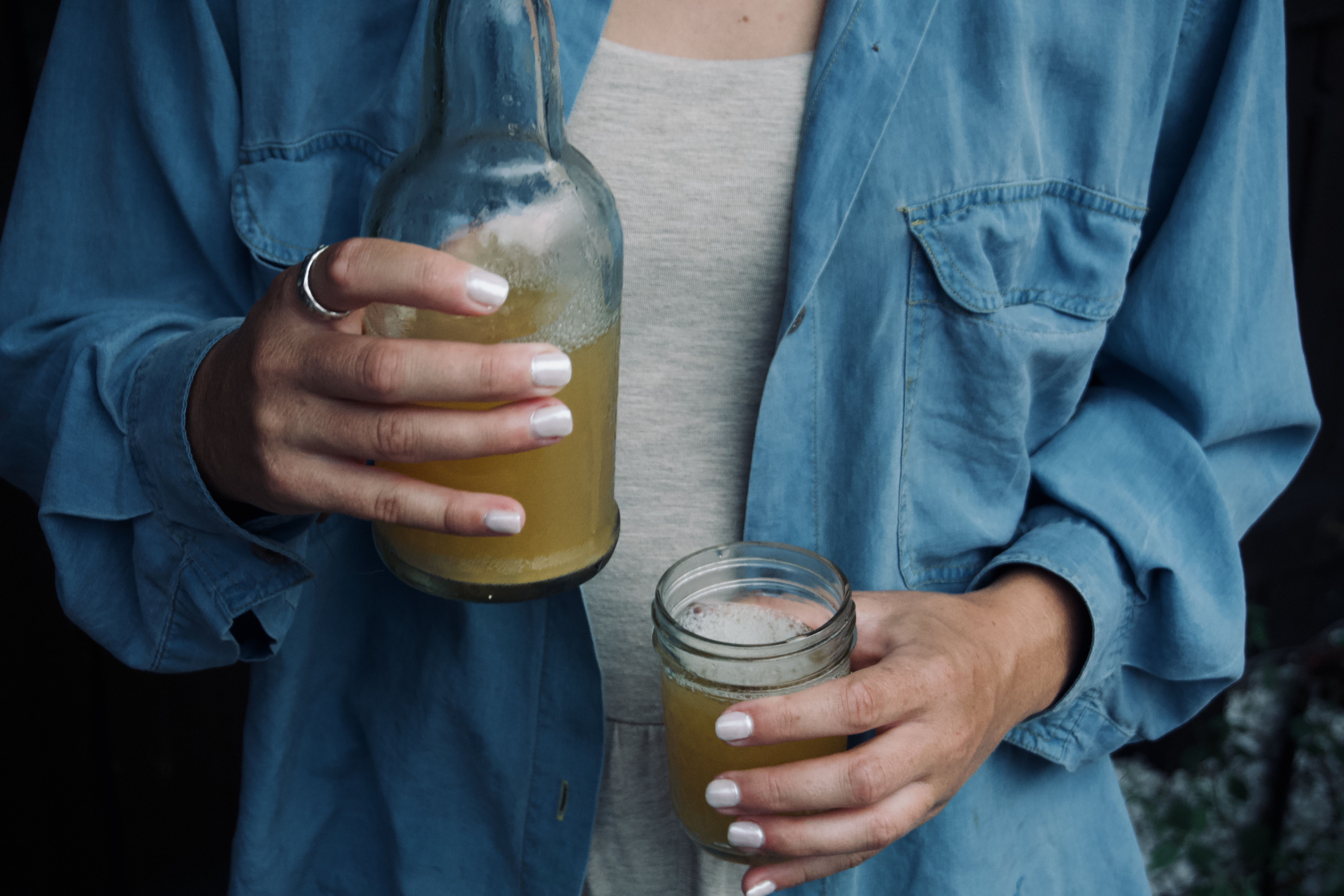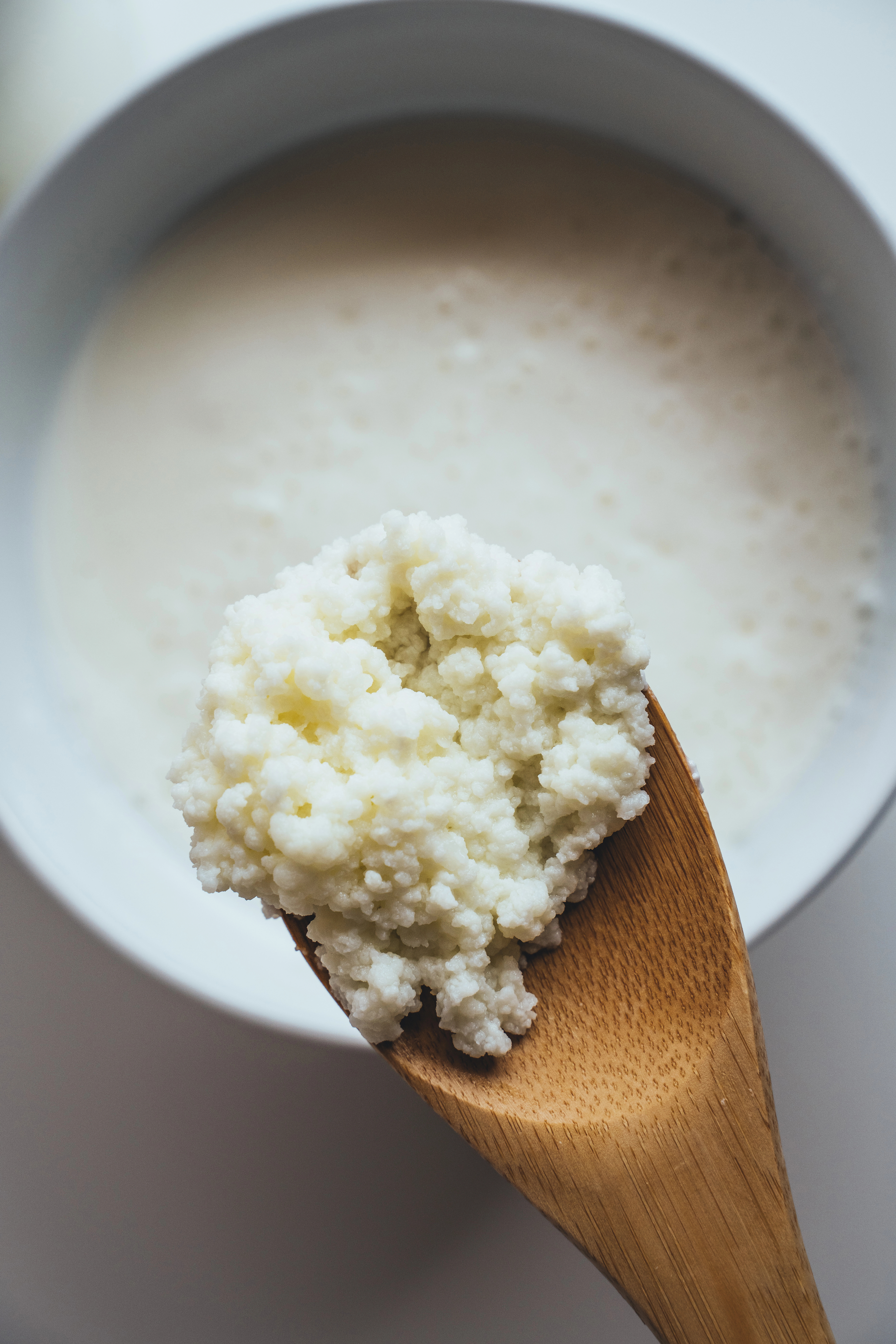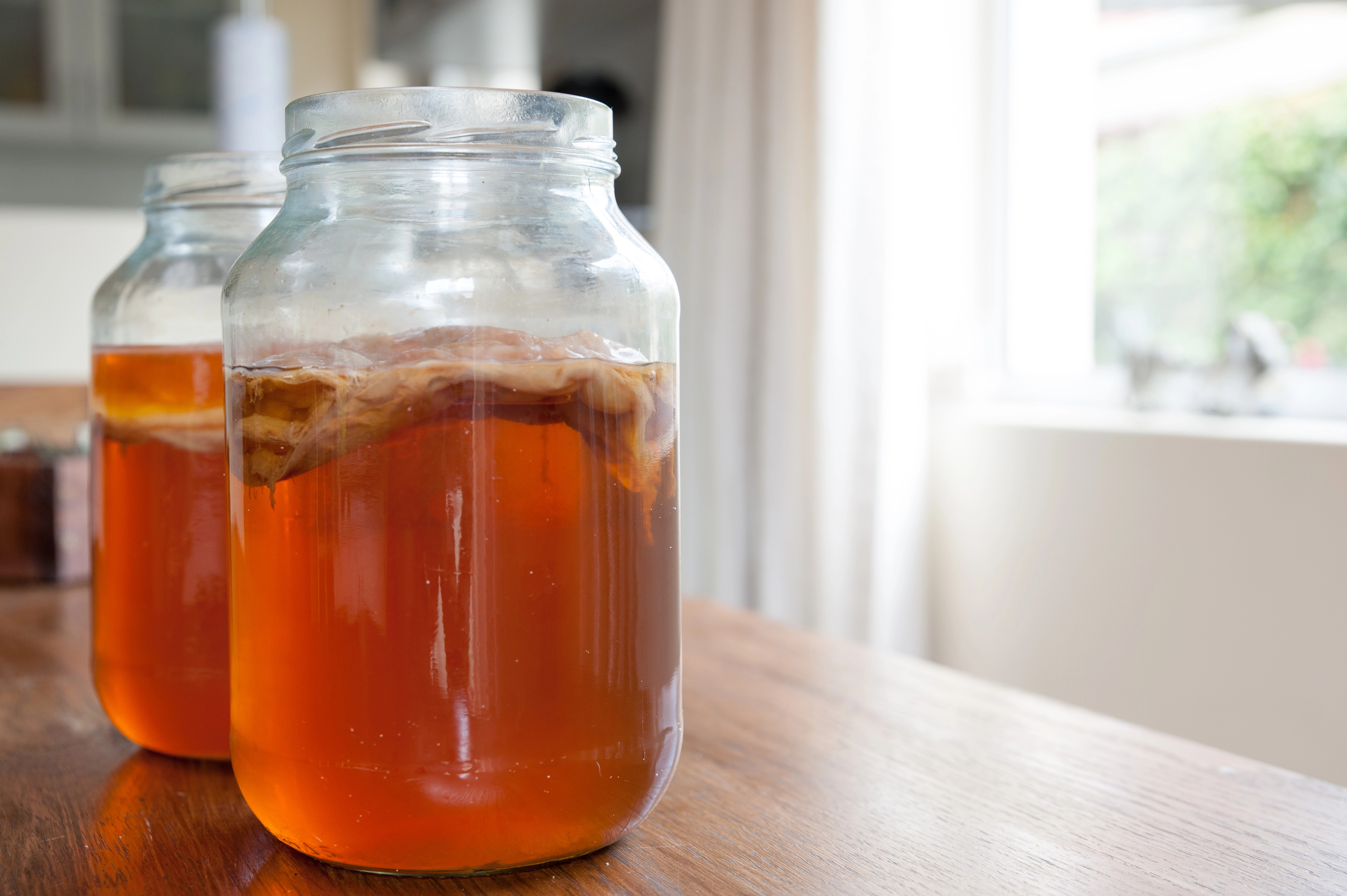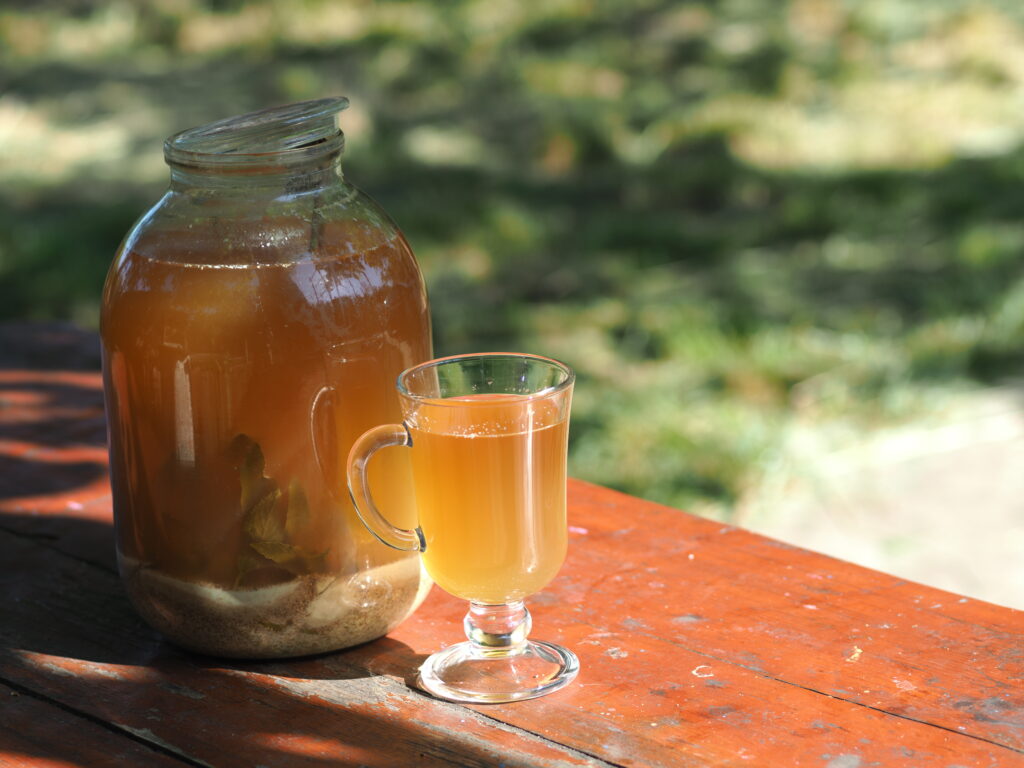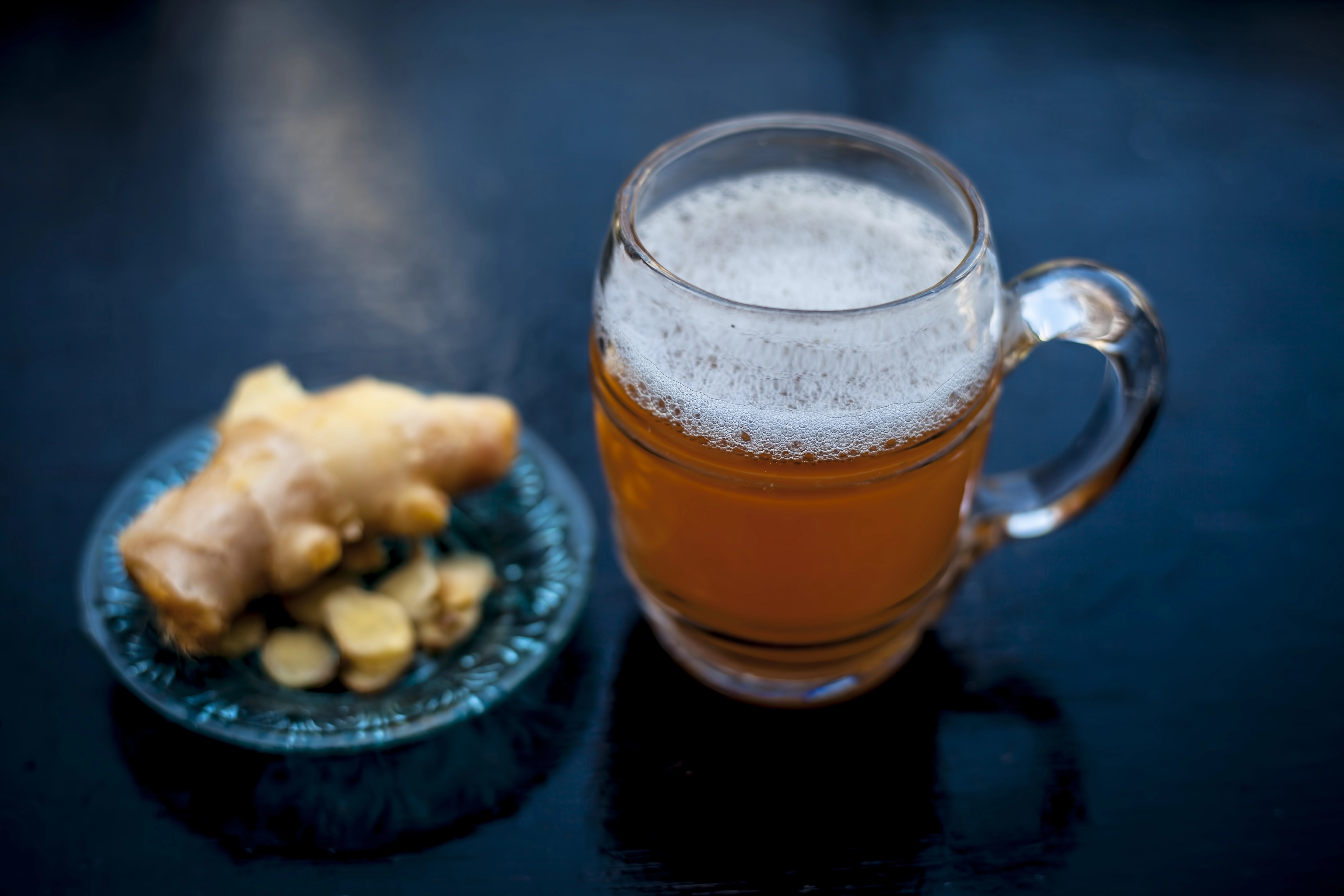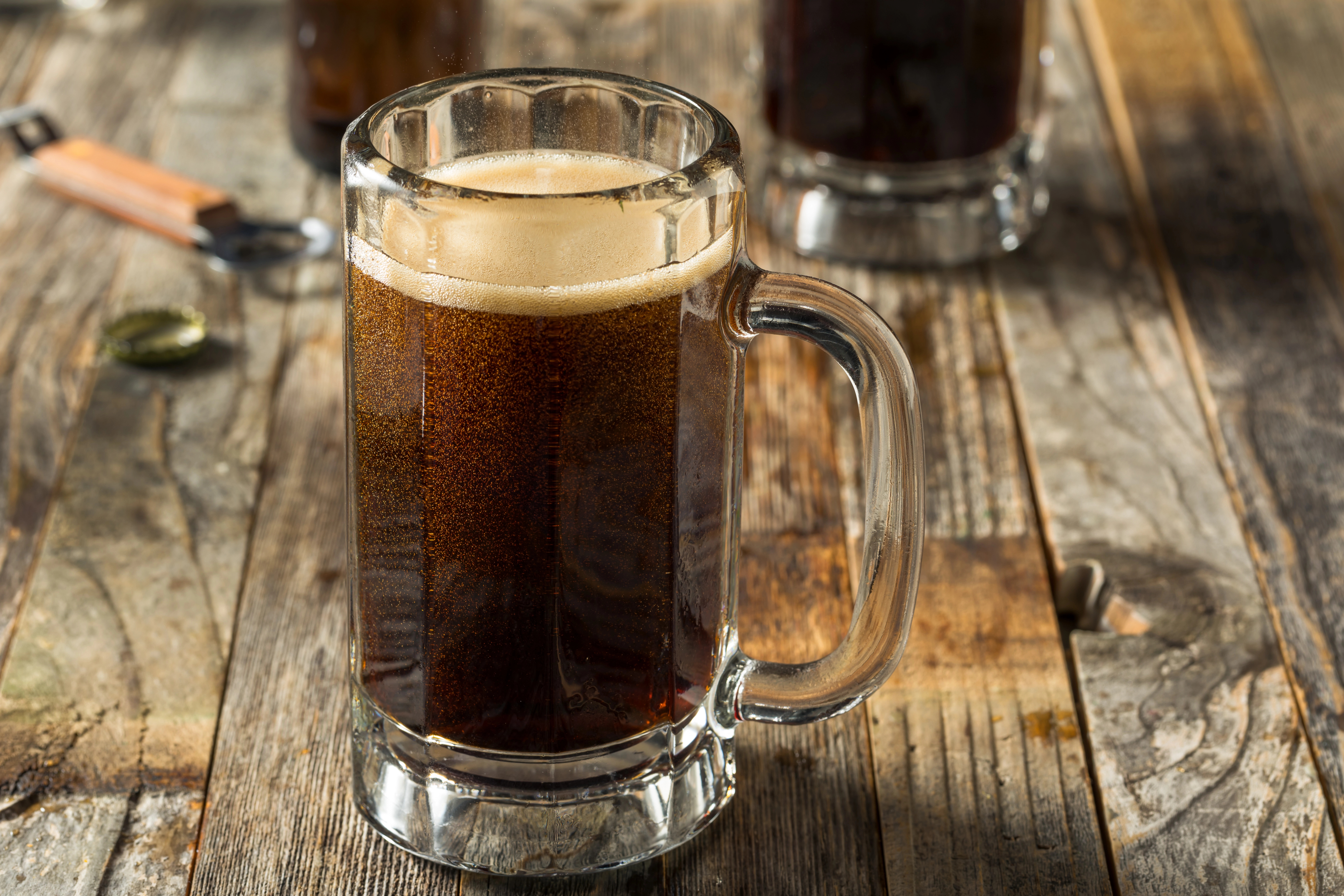Fermentation is far from a new advancement. Only now, do we realize fermented drinks for gut health have beneficial effects. Here are the top drinks from around the world that play a part in our happy gut’s microbiome!
As a beer brewer, my fascination with fermentation lives in the evolution. Across the globe, civilizations have used fermentation for centuries, not only to get tipsy, but, also to preserve food, honor their Gods, or use it as medicine.
Now, we know the potent powers of fermentation on our gut health.
You will learn about the various styles of fermented drinks that are good for your gut health. Some might surprise you! I will include links to recipes so you can make them yourself. I even add in the fermented drinks benefits!
Some drinks are nonalcoholic fermented drinks, and some are alcoholic! Either way, these drinks are the best drinks for gut health.
This post is all about fermented drinks for gut health.
Fermented Drinks for Gut Health
The array of drinks mentioned includes commonly known probiotic drinks and some very unknown drinks from different parts of the world. Some can be found in stores, and others must be made at home!
1. Sweet Potato Fly
Sweet potato fly is uncommon, and I would be very impressed if you have heard of it before!
Sweet potato fly is a traditional tonic beverage from Guyana, a northeastern country in South America. Sandor Katz’s book The Art of Fermentation discusses it in depth.
Think about it, sweet potatoes have sugar and natural starches which can be converted into alcohol and lactic acid when introduced to yeasts.
This tonic is made from sweet potatoes, sugar, water, lemon juice, and even eggshells. In. the book she mentions you can add various flavors like cinnamon, nutmeg, cloves, etc.
The eggshells, apparently, seem to help neutralize the sourness in the drink.
Here is a recipe on Sweet Potato Fly for a homemade fermented sweet potato recipe!
2. Beer
Believe it or not, beer has some beneficial gut health properties. Probably, the BEST fermented drink around (in my opinion!).
However, beer loses most of its probiotic beneficiaries during production in commercially made beers. Even in homemade beers, some probiotics will get lost.
However, homemade beer will have higher concentrations of probiotics.
In commercial breweries, they tend to pasteurize their beer. Meaning they boil their beer so it doesn’t grow wild bacteria and yeast when it’s on the selves.
On the other hand, beer has prebiotic properties.
A prebiotic is bacteria and yeast that help create a beneficial microbiome for good bacteria to thrive. Learn more about that here.
So, when diving into gut health you can have a beer as a prebiotic, then follow it up with kefir or kombucha for probiotics.
Follow my complete guide to beer making for beginners to start brewing your own beer at home. It is easier and simpler than you think!
3. Kefir
Kefir is fermented milk and is known as the “champagne of milk”. The fermentation process kefir undergoes gives the milk a sour taste and a fizzy texture.
It might take a moment to get used to sour carbonated milk, but when you do it is a luxury.
Fermenting kefir creates a clump of live bacteria and yeast that feed off the sugar in the milk with the byproduct being lactic acid and carbon dioxide.
Some call these clumps “Grains of the Prophet”. Some folklore says Mohammed gifted these grains to the Orthodox people in the Caucasian Mountains. They kept them secret and passed these ancient grains down through generations.
You can make your kefir by adding kefir grains into milk and fermenting on the counter for 2-4 days. Or until it reaches your desired taste!
You can get a kefir grain starter here.
4. Kombucha
Kombucha might be the most widely known probiotic drink. For those who don’t know, kombucha is a drink that uses a SCOBY. Which stands for “symbiotic culture of bacteria and yeast”.
Using that SCOBY with sugar and water you can create a fermentation. After a few days, this ferment can be bottled, flavored, and enjoyed a few days later.
Personally, this drink is not my expertise. But, here is a place to go to learn more about kombucha and how to make it!
5. Kvass
Kvass is a fermented drink from Eastern Europe, mainly Russia. It is fermented from old bread! Now, it has gained popularity so you also have beet kvass and even tea kvass.
Believe it or not, you use a sourdough yeast starter to ferment this drink.
Old bread, water, and sourdough starter ferment for a few days and then the bread gets strained out. And voila! You have made kvass (in the simplest terms).
Kvass is a more salty & savory fermented beverage than a sweet sugary beverage. If you want to know how Russians like their “sodas” then try homemade Kvass!
Kvass is rich in B vitamins, manganese, selenium, and zinc.
The fermented bread gives the drink its probiotics and gut health. Though, if you are allergic to bread then this might not be the best fermented drink for gut health for you.
Here is a lovely recipe for traditional Russian fermented Kvass.
6. Smreka
Now we travel to Bosnia for Smreka! Smreka is simple: juniper berries, water, and yeast. No sugar added!
The sugar in the juniper berries is enough sugar to start a fermentation. This fermentation lasts about a month, which is longer than most other fermented beverages on this list!
Here is a lovely recipe for Smreka, or fermented juniper berries.
7. Mabi / Mauby
Mabi will be a more challenging ferment adventure than the more commonly known drinks. Mabi is a traditional drink from the Caribbean islands. It is a drink that comes from fermented Mabi bark. Yes, fermented tree bark!
Mabi bark can be challenging to find. If you have an international grocery store, you might be able to find it.
Katz discusses this beverage in detail in her book, Art of Fermentation. She mentions there is more to the recipe than just Mabi bark. Some have ginger, cinnamon, etc.
It is interesting to see the far and wide reaches that fermentation has landed. From Africa to Guayana to the Caribbean Islands. Everyone seems to have their very own expression of a fermented beverage.
Even just fermented bark creates probiotics for gut health. To find a recipe for Mabi, I would look into the book Art of Fermentation as she describes this beverage well.
8. Tepache
I wanted to throw this drink in to highlight to grandness of fermentation. It reaches far and WIDE across the globe.
Tepache is a Mexican soft drink. Traditionally made from fermented corn.
But, now has evolved and is made from pineapples and other fruits.
Alternatively, this beverage takes only a few days of fermentation to reach its refreshing and lightly sweetened level. If you keep fermenting it will get alcoholic, and after that, it will turn to vinegar.
Here is a lovely Tepache recipe for this Mexican fermented soda.
9. Ginger Beer
Ginger beer is similar to fermented soda. You can ferment ginger beer in a one-gallon fermenter, but you can also make and bottle ginger beer on the same day.
The fermentation occurs within the bottle as it carbonates.
Ginger helps our gut health on various levels. It calms an upset stomach, increases digestion, and as a soda, it provides a probiotic boost.
Also, homemade ginger beer has lemon juice. Additionally, lemon juice is amazing for overall digestion.
Ginger beer is the best for you if you experience stomach aches or digestion problems. Here is a great recipe for homemade ginger beer.
10. Roots beer
You are familiar with root beer!
Traditionally, root beer is made with roots and herbs. Roots and herbs like sassafras, sarsaparilla, licorice, ginger, dandelion root, burdock root, juniper berries, and birch bark. All of which have great health benefits!
Traditionally, root beer was made from roots and herbs, until commercial soda companies created artificial flavors that resembled the traditional array of herbs.
They added sugar and other chemicals which birthed what we know as root beer today.
You can create a root beer that has some or all of the traditional flavors. Whatever suits your style. But, it will be equally as delicious, if not more delicious, than the commercial-style root beer!
Here is a great example of a homemade root beer recipe.
11. Fermented soda
Fermented soda is probably the easiest fermented drink for gut health you can make! From blackberry soda to apple spiced soda, to orange creamsicle soda, the opportunities are endless.
Fermented soda can be made in two ways: boiling or cold infusion.
The boiling method includes making a tea then adding sugar and yeast and allowing it to ferment. The cold infusion is placing herbs, fruit, etc into a fermenter with sugar and yeast and allowing it to ferment.
RELATED POST: How to Make a Homemade Soda Recipe (That Actually Has Health Benefits)
All you need for a fermented soda is a one-gallon fermenter and airlock, yeast, water, and whatever flavorings/herbs you prefer.
This method of a fermented drink for gut health is extremely versatile.
You can create a Lemon Balm lemon soda that helps with anxiety and relaxation: a perfect nonalcoholic drink for the evening. Or even a Lion’s Mane lemon blueberry soda for increased cognitive function.
Here is a recipe for Apple Spiced Fermented Soda
Check out Mountain Rose Herbs for all your herbal needs when creating fermented drinks for gut health at home! They are all organic and ethically produced.
This post was all about fermented drinks for gut health from all across the globe.
Other Posts You May Like…
✓ Apple Spiced Fermented Soda for a Nonalcoholic Drink Alternative
✓ A Complete Guide to Beer Making for Beginners
✓ 19+ Spectacular Beer Gift Ideas Guaranteed to Make Them Smile
✓ 4 Top-Notch Beer Recipe Kits You Need for Insanely Good Beer

